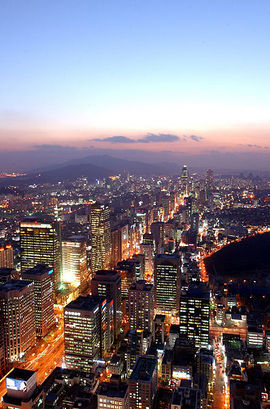Cities: A Solution to Overpopulation.

A city is a large and permanent settlement containing complex systems for sanitation, utilities, land usage, housing, and transportation. We saw a fast rise in the number and sizes of cities beginning with the 20th century. By the end of the century, more than 50% of humankind is living in metropolitan areas. In industrialized countries it is 70%. Of course this fast rise in our urban population also brought many challenges: Cities in developing countries and newly-industrialized countries are struggling to catch up with the pace. The result are huge slums that have no access to electricity, sanitation, and even clean water! Examples are Rio de Janeiro, Lagos and Cairo. But we cannot deny the positive side of urbanization.
As more people move to the cities, rural areas will have the opportunity to recover from the human presence. Animals will begin to return to their old habitats, plants will take over, forests, rivers, and lakes will have time to recover from destructive subsistence farming techniques, like slash and burn agriculture. Humankind will find a way to produce most that it needs within the boundaries of the urban areas caused by the reduced transportation of people, goods and ideas. Most of the food in Shanghai, a city with 23 million people, is grown within the city's boundaries. It is grown by small farmers who make use of every little space in the city. This is the direction, humanity has to go in order to provide for all 9.9 billion people.
But there is more. With the end of the 20th century, we could also observe a movement to turn the urban concrete jungle into a greener environment. Trees would not only improve the air quality, but the green colors and large parks under blue skies also have a positive impact on human psyche and the balance of the urban ecosystem. Another very important side effect of urbanization is the birth rate of new urban dwellers that falls immediately to replacement rate, and keeps falling. The greater access to education, health care, opportunities and the increasing awareness that there are many humans living on this planet causes people to consider a stable career and fewer children. That leads us to the last point.
City life changes society. It is very clear, to almost everyone that people living in urban areas are more aware of what is happening in the world and to our planet. City people are more likely to connect and exchange with foreigners who are residing in the city, visiting or are living in another country. This increases tolerance for one another. People tend to see themselves more as world citizens who are part of a larger global community rather than part of a nation, ethnicity or skin color (see cosmopolitanism). This sense of being one humankind while preserving the cultural, political and religious diversity will play an important part whether we can tackle our main issues: Global warming, population growth, poverty, terrorism and human rights.
As more people move to the cities, rural areas will have the opportunity to recover from the human presence. Animals will begin to return to their old habitats, plants will take over, forests, rivers, and lakes will have time to recover from destructive subsistence farming techniques, like slash and burn agriculture. Humankind will find a way to produce most that it needs within the boundaries of the urban areas caused by the reduced transportation of people, goods and ideas. Most of the food in Shanghai, a city with 23 million people, is grown within the city's boundaries. It is grown by small farmers who make use of every little space in the city. This is the direction, humanity has to go in order to provide for all 9.9 billion people.
But there is more. With the end of the 20th century, we could also observe a movement to turn the urban concrete jungle into a greener environment. Trees would not only improve the air quality, but the green colors and large parks under blue skies also have a positive impact on human psyche and the balance of the urban ecosystem. Another very important side effect of urbanization is the birth rate of new urban dwellers that falls immediately to replacement rate, and keeps falling. The greater access to education, health care, opportunities and the increasing awareness that there are many humans living on this planet causes people to consider a stable career and fewer children. That leads us to the last point.
City life changes society. It is very clear, to almost everyone that people living in urban areas are more aware of what is happening in the world and to our planet. City people are more likely to connect and exchange with foreigners who are residing in the city, visiting or are living in another country. This increases tolerance for one another. People tend to see themselves more as world citizens who are part of a larger global community rather than part of a nation, ethnicity or skin color (see cosmopolitanism). This sense of being one humankind while preserving the cultural, political and religious diversity will play an important part whether we can tackle our main issues: Global warming, population growth, poverty, terrorism and human rights.
New category: Society
This category will deal with social problems on a local, continental and global scale. I deliberately ignore the national level since I think that this communitarian worldview is the cause why we have failed to tackle the many major problems we face today.
This part of the site will give you an insight into the cornucopian and cosmopolitan interpretations of our current problems and how we should solve them.
This part of the site will give you an insight into the cornucopian and cosmopolitan interpretations of our current problems and how we should solve them.
